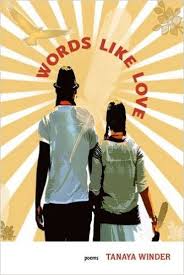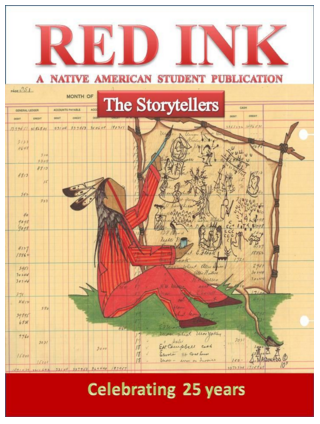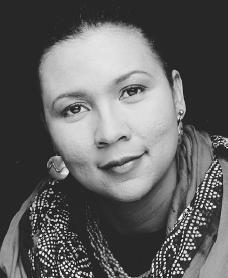 Everyone lately has been talking about American political and cultural fragmentation—red states vs. blue states, natives vs. immigrants, cops vs. African Americans, and on and on. Even BBC News, to judge by its website, finds our cultural battles more interesting than MI5’s phone spying.
Everyone lately has been talking about American political and cultural fragmentation—red states vs. blue states, natives vs. immigrants, cops vs. African Americans, and on and on. Even BBC News, to judge by its website, finds our cultural battles more interesting than MI5’s phone spying.
Not only do we disagree about everything, but we’ve combined our disputes with a new form of segregation. Most of us manage to live in a way that keeps us safe from The Others, namely, those whose opinions we can’t abide. In his 2008 book The Big Sort, Bill Bishop documented how Americans sort themselves into like-minded communities that have little contact with each other. We live in different cities and neighborhoods, we watch different TV programs and browse different websites, we listen to different music, we hear different types of news.
When by accident we stumble across The Others, our typical reaction is to brand them as ludicrous. Here’s an illustration: A friend of mine from Philadelphia, an American citizen born in Chile, recently flew to Santiago for a family visit, along with his American-born wife. When they returned to the U.S., they came through customs at the Houston airport. As is normal, my friend filled out a single customs declaration form for himself and his wife. The customs officer studied the form and the passports and then looked up suspiciously. “How come your wife has a different last name?” the guy wanted to know. Well, the wife is an academic who has published books and papers under her maiden name, so she’s not about to change it. She started to get upset, but my friend gently explained the matter to the agent: “You know,” he said, “some women who teach in universities like to use their original names, it’s pretty common these days.” The agent thought about this awhile. “Where you from?” he then demanded. “Philadelphia,” my friend answered, and the agent grimaced, “I don’t like Philadelphia. They hate guns up there.” My friend tried to finesse this point, saying there are plenty of people in our area who own guns (although he is not one of them). At last, the customs agent gave in and let the couple pass, but he issued a stern recommendation: “You gotta get yourself some guns!”
Naturally, as my friend told me the story, we both guffawed about it. How stupid that customs guy was! He didn’t even know that lots of American women have been keeping their maiden names for, like, the past 50 years??? A Neanderthal! There was no doubt that my friend and I shared the same opinion—and disdain.
When Pope Francis came to Philadelphia this past September, I thought about the issue again—because the Pope was the exception that proved the rule. On my Facebook feed, I encountered various reactions to the papal visit:
- Appreciative: It’s so great that we can host a major religious figure in our city.
- Mildly critical: It was a nice occasion, but the security measures went over the top.
- Angry: It was a goddamn military occupation—National Guard, Secret Service, and Homeland Security everywhere!
- Outraged: What the *@#%!! happened to the separation of church and state?!!!
What was remarkable was that my Facebook friends showed a significant range of views on the subject. This made me realize that, on most days, I encounter little diversity of opinion either in real life or on social media. Admittedly, there’s my one friend who believes Wall Street bankers should be shot, which I think kind of extreme; but everyone else I know thinks Wall Street should be converted into a maximum-security prison, so that’s not a huge spread of values. I dare say the same is true for most other Americans. Maybe you have Facebook friends who think everyone should have automatic weapons in the house, but if so, your other friends probably think at least a couple of .38s are necessary—again, not much of a spread.
There’s no doubt that our insularity, the way we isolate ourselves from other viewpoints, aggravates our differences. So what can we do about it? When my two kids reached college age, I tried encouraging them to attend schools in the Midwest, just for exposure to different sceneries and cultures. Our college tours took in Minnesota, Iowa, and Ohio as well as Maine, Connecticut, and New Hampshire. Where did they end up going to school? The Philadelphia suburbs and New York City.
My daughter did spend a semester in London, on one of those standard college exchange programs. She learned to ride double-decker busses, appreciate different types of curry, and spend pounds as if they were dollars. And I fondly remember my own time as a graduate student in London, when I learned to love beans on toast with milky tea. (That was before the whole city went upscale.) So, along those lines, I’ve been thinking: What about a student exchange program within the USA? Our contrasts with each other are much bigger than our differences from the average Londoner. I mean, my British landlords laughed at me when I asked where to put the “garbage,” but that was mere vocabulary, hardly like the gap between Sarah Palin and Elizabeth Warren.
Imagine how a domestic student exchange would work. That Houston customs agent would send his kids to Philly or New York for a semester. We’d have to quarantine their weapons, but they’d learn a hell of a lot about people different from them. And the same if we sent Muslim kids from, say, Flatbush to Kentucky.
I’m proposing to call this initiative ISEP: The Interstate Student Exchange Program. It will have to be set up by individual states, of course, because Congress can’t create anything except acrimony. I myself will be happy to host a young Houstonian, whom I can introduce to NPR, vegan cheesesteaks, poetry readings, and my friend who wants to shoot bankers (the young person’s guns might be useful for that). And I’m willing to send my grandchildren to Houston to learn about Tex-Mex cuisine, oil drilling, Kenny Rogers, and the proper way to hold an assault rifle.
The upshot of ISEP may be that we come to value our differences. Or perhaps we’ll just be better informed, so that instead of finding The Others totally weird and absurd, we’ll hate them for good reason.
By now, I confess, I don’t know how serious I am. Do we really need to treat other states like foreign countries? Must we set up an acronymic government program to help us talk to one another? Maybe I’m being earnest-ironic-whimsical—and if so, isn’t that appropriate for our times? Let’s ask Ms. Palin and Ms. Warren.
In case you do want to call your state legislator to promote ISEP, I’ll offer one final note: The program can be entirely tax-neutral. It can be funded by cutting regular school budgets, which many states already love to do.
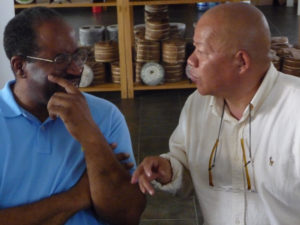 Today we are pleased to feature author Afaa Weaver as our Authors Talk series contributor. Afaa reads three of his poems from his new book, Spirit Boxing. He says of the book, “Spirit boxing continues my direct conscious application of principals of Chinese culture.” Much of his influence comes from the ideals of Tai Chi.
Today we are pleased to feature author Afaa Weaver as our Authors Talk series contributor. Afaa reads three of his poems from his new book, Spirit Boxing. He says of the book, “Spirit boxing continues my direct conscious application of principals of Chinese culture.” Much of his influence comes from the ideals of Tai Chi. On Friday June 16th, Rinky Dink Press will be hosting a launch party for it’s newest series of micro-chapbooks. The event will take place at Wasted Ink Zine Distro from 7PM to 9PM. Stop in for refreshments and pop-up readings from ten brand new microzines and micro-chapbooks. All books will be on sale for $1 each, and performing poets include Virginia Chase Sutton and Randy Heflin. Other published poets include Justin Rogers, Jasmine Chatfield, Woody Woodger, Dane Hamann, Jessica Van de Kemp, Caroline Kessler, Alex Skorochid, and Nick Hopkins.
On Friday June 16th, Rinky Dink Press will be hosting a launch party for it’s newest series of micro-chapbooks. The event will take place at Wasted Ink Zine Distro from 7PM to 9PM. Stop in for refreshments and pop-up readings from ten brand new microzines and micro-chapbooks. All books will be on sale for $1 each, and performing poets include Virginia Chase Sutton and Randy Heflin. Other published poets include Justin Rogers, Jasmine Chatfield, Woody Woodger, Dane Hamann, Jessica Van de Kemp, Caroline Kessler, Alex Skorochid, and Nick Hopkins.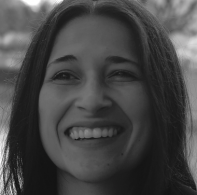

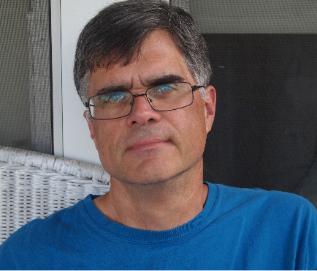 Recently, in my graduate fiction workshop, we were chewing over that vexing subject of the artist’s role in human society. Our discussion stemmed from having just read
Recently, in my graduate fiction workshop, we were chewing over that vexing subject of the artist’s role in human society. Our discussion stemmed from having just read 